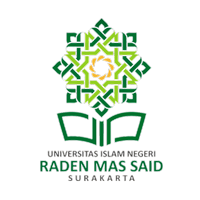Religion and Ecology: The Philosophical Relationship Between God, Nature, and Humanity
Contributors
Luthfiana Zahriani
Ah. Kholis Hayatuddin
Fery Dona
Keywords
Proceeding
Track
General Track
License
Copyright (c) 2025 Said Annual Roundtable on Indonesia and Religious Affairs

This work is licensed under a Creative Commons Attribution-ShareAlike 4.0 International License.
Abstract
Studies on the relationship between religion and ecology demonstrate a profound connection between God, nature, and humanity from a philosophical perspective. Although various studies have addressed the theological dimension of ecology, a research gap remains in holistically exploring how spiritual and religious values shape ecological ethics that can respond to the contemporary environmental crisis. Most previous studies have focused solely on ecological norms in sacred texts, but have not explored the relational philosophical dimension that simultaneously involves transcendental (God), cosmic (nature), and existential (human) aspects. Therefore, this study aims to answer the following research question: How can the construction of a philosophical relationship between God, nature, and humanity within a religious framework contribute to ecological awareness and understanding? The method used is a qualitative approach with a philosophical-religious literature study. Data were obtained through an in-depth review of religious literature, the thoughts of spiritual figures, and environmental philosophy. Preliminary results indicate that in various religious traditions, the relationship between God, nature, and humanity is built on the principle of interconnectedness and spiritual responsibility, where humans are not the dominant center, but rather part of the cosmic order that must be maintained. The implications of this relationship open up space for the development of a spiritually-based environmental ethics, which can serve as the foundation for sustainable ecological practices in social life. This research is expected to provide theoretical contributions to ecological philosophy and religiously based sustainability practices.
